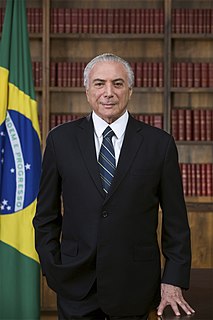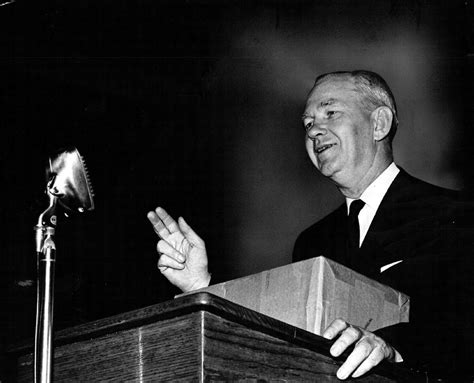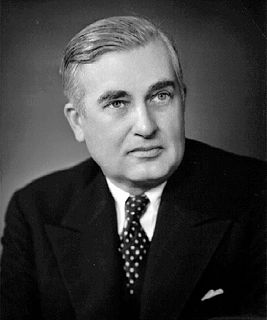A Quote by Stephen Harper
Whether Canada ends up as one national government or two national governments or several national governments, or some other kind of arrangement is, quite frankly, secondary in my opinion...
Related Quotes
If terror groups are to be defeated, it is national governments that will have to do so. In nations like India, governments will have to call on the patriotism of citizens to fight the terrorists. In a nation like Pakistan, the government will have to be persuaded to deal with those in their midst who are complicit.
It is not certain that with this aid alone [possession of arms], they would not be able to shake off their yokes. But were the people to posses the additional advantages of local governments chosen by themselves, who could collect the national will, and direct the national force; and of officers appointed out of the militia, by these governments and attached both to them and to the militia, it may be affirmed with the greatest assurance, that the throne of every tyranny in Europe would be speedily overturned, in spite of the legions which surround it.
In the model that we grew up with, governments rule physical territory in which national economies function, and strong economies support hegemonic military power. In the new model, already emerging under our noses, economic decisions don't pay much attention to national sovereignty in a world where more than half of the one hundred or two hundred largest economic entities are not countries but companies.
We have a media that goes along with the government by parroting phrases intended to provoke a certain emotional response - for example, "national security." Everyone says "national security" to the point that we now must use the term "national security." But it is not national security that they're concerned with; it is state security. And that's a key distinction.
Sir Joh Bjelke-Petersen has been the Queensland premier the whole time we've been in Australia, and the state is a national joke for having a Deep North government thats said to resemble governments of a generation or more ago in some parts of the US Deep South - governments that always talk about getting things done and never talk about rights.
The White House released documents it claims validates the president's (National Guard) service ... When deciphered the documents showed that in a one-year period, 1972 and 1973, Bush received credit for nine days of active National Guard service. The traditional term of service then and now for the National Guard is one weekend a month and two full weeks a year, meaning that Bush's nine-day stint qualifies him only for the National Guard's National Guard. That's the National Guard's National Guard, an Army of None.
It is the duty of all Nations to acknowledge the providence of Almighty God,. to obey his will, to be grateful for his benefits , and humbly to implore his protection and favor... beseech Him to pardon our national and other transgressions; to enable us all, whether in public or private stations, to perform our several and relative duties properly and punctually to render our National Government a blessing to all the people by constantly being a Government of wise, just, and constitutional laws, discreetly and faithfully executed and obeyed
The proposed constitution, therefore, even when tested by the rules laid down by its antagonists, is, in strictness, neither a national nor a federal constitution; but a composition of both. In its foundation it is federal, not national; in the sources from which the ordinary powers of the government are drawn, it is partly federal, and partly national; in the operation of these powers, it is national, not federal; in the extent of them again, it is federal, not national; and finally, in the authoritative mode of introducing amendments, it is neither wholly federal, nor wholly national.































